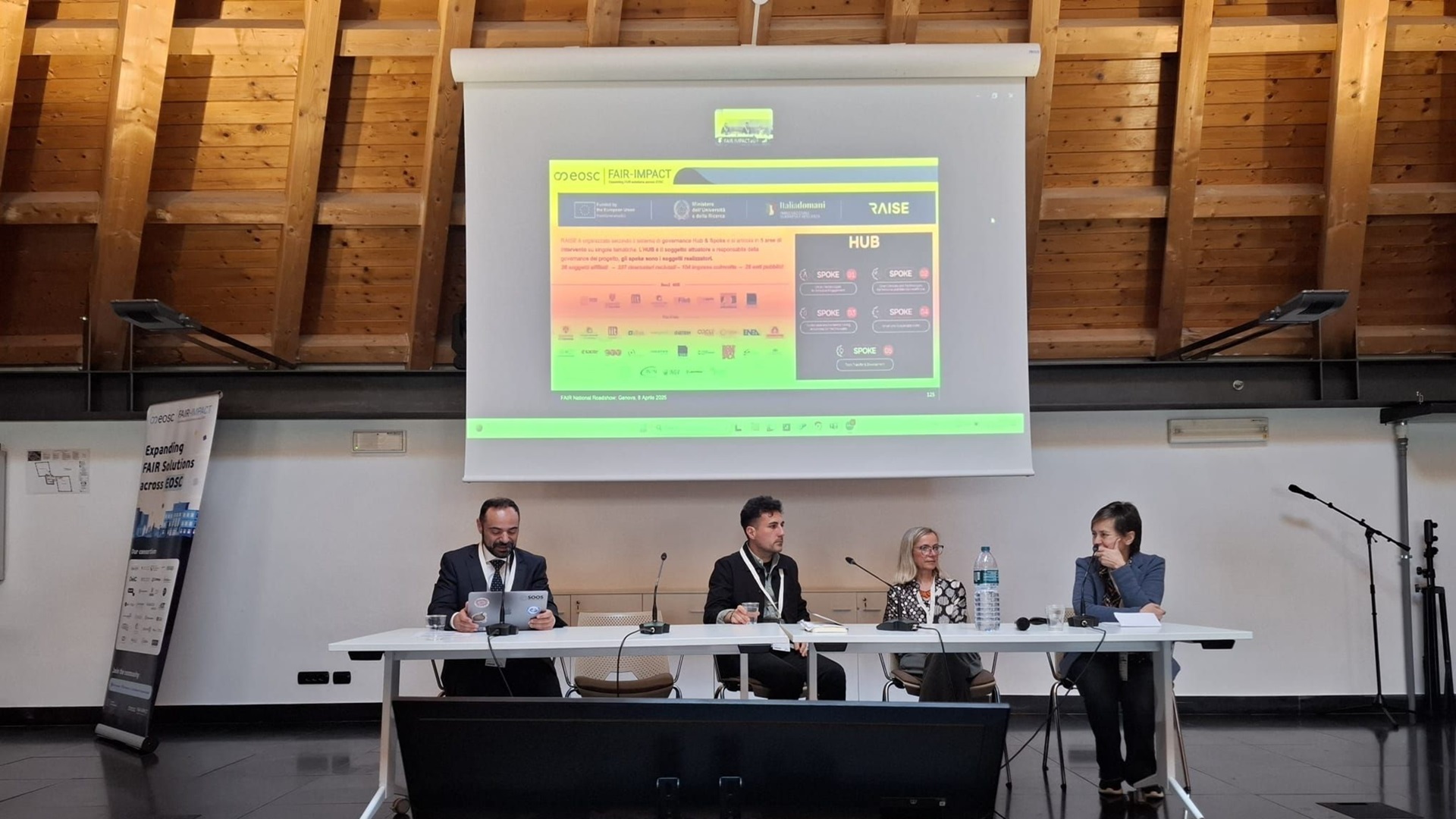
Michela Spagnuolo from CNR-IMATI took part in the Genoa edition of the FAIR National Roadshow Italy on behalf of Spoke 1 of the RAISE project, held on April 8, 2025, at the Magazzini dell’Abbondanza in the BlueDistrict.
The event, dedicated to promoting FAIR (Findable, Accessible, Interoperable, Reusable) data practices, provided an important opportunity to discuss the central role of open and well-managed data in transforming urban environments into smarter, more sustainable, and inclusive cities.
During the panel “Smart Cities, FAIR Practices”, Michela Spagnuolo presented the Open Data Management approach adopted by RAISE, with a specific focus on the D4Science platform and the DCAT standard. These tools are designed to facilitate open, transparent, and traceable data sharing and reuse.
Her presentation emphasized how the FAIR data paradigm also underpins the work of Spoke 1, which is dedicated to developing digital solutions aimed at improving urban quality of life. Making data findable, accessible, interoperable, and reusable enables the creation of innovative services that support sustainable mobility, environmental management, access to public services, and more active civic participation.
Other speakers in the same panel included Andrea Tarallo (CNR IRET) and Enrico Buzzo (AMT Genova), contributing to an interdisciplinary dialogue on urban data governance and its practical impact on everyday life.
The event, organized by the European project FAIR-IMPACT in collaboration with ETT and the Data Stewards of the University of Bologna, was structured into two main sessions.
The morning session provided an overview of Italy’s Open Science policy, the national competence center currently under development, and the Italian Reproducibility Network (ITRN). The afternoon session showcased successful FAIR practices already implemented in Italy, particularly in the fields of environmental emergency management and marine and ocean sciences.
Michela Spagnuolo’s participation on behalf of Spoke 1 highlighted RAISE’s commitment to fostering a data culture oriented toward innovation and the improvement of urban life through the responsible, open, and shared use of information.

